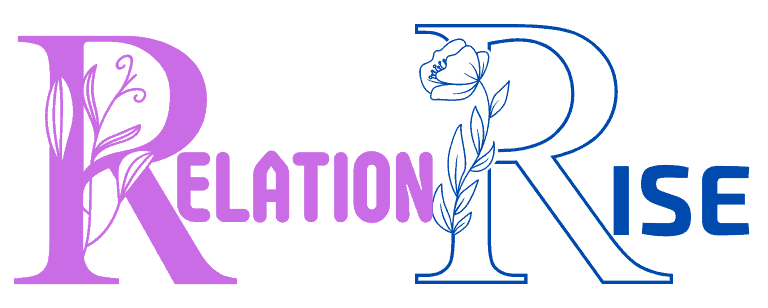What Does Stakeholder Relationships Mean
Stakeholder relationships refer to the interactions and connections between an organization and its various parties with a vested interest in its activities and decisions. This includes employees, customers, suppliers, investors, and the local community.
Building and maintaining strong stakeholder relationships is crucial for the success of the organization and involves effective communication, transparency, and understanding of each party’s needs and expectations. Effective stakeholder relationships are essential for the overall success and sustainability of an organization.
By fostering positive interactions with stakeholders, businesses can enhance their reputation, increase trust, and gain valuable insights that can drive strategic decision-making. This, in turn, can lead to improved performance and long-term success. As such, understanding the dynamics of stakeholder relationships and engaging with them in a meaningful way is a vital component of any organization’s operations.
The Significance Of Stakeholder Relationships
Defining Stakeholders In Business
The term ‘stakeholders’ in the context of business refers to individuals or entities that have a vested interest in the operations and outcomes of a company. This includes but is not limited to employees, customers, suppliers, investors, and the local community. Identifying and understanding the diverse range of stakeholders is crucial for businesses to effectively manage their relationships and ensure mutual benefit.
Understanding The Impact Of Stakeholder Relationships On Business Success
Stakeholder relationships play a pivotal role in determining the success and sustainability of a business. By establishing positive and collaborative relationships with stakeholders, a company can build trust, enhance its reputation, and gain valuable support. This, in turn, can lead to increased customer loyalty, improved employee motivation, and greater access to resources and opportunities.
Importance Of Stakeholder Engagement
Stakeholder engagement refers to the process of building and managing relationships with individuals or groups who have an interest or influence in an organization. It involves understanding and addressing the diverse needs, expectations, and concerns of stakeholders at every stage of the business. Strong stakeholder engagement is crucial for the success and sustainability of any organization, as it fosters trust, collaboration, and mutual benefit.
Acknowledging Diverse Stakeholder Interests
Effective stakeholder engagement begins with acknowledging and understanding the diverse interests, perspectives, and priorities of each stakeholder group. This involves conducting thorough research and analysis to identify the key stakeholders and their respective concerns. By recognizing and respecting these diverse interests, organizations can foster a more inclusive and collaborative approach to decision-making, ultimately resulting in better outcomes for all stakeholders.
Strategies For Effective Stakeholder Engagement
Implementing effective strategies for stakeholder engagement is essential for maintaining positive relationships and gaining valuable input from stakeholders. Some key strategies include:
- Open communication and transparency
- Regular consultations and feedback mechanisms
- Incorporating stakeholder perspectives into decision-making processes
- Creating meaningful opportunities for stakeholder participation
- Building trust and demonstrating commitment to stakeholder concerns
Building Trust And Communication With Stakeholders
Building trust and effective communication with stakeholders is crucial for the success of any business or project. By understanding the key stakeholders and actively engaging with them, organizations can ensure that their interests are represented and that the resources necessary for the project are available. Two essential components in building strong stakeholder relationships are implementing transparent communication and establishing trust through ethical practices.
Implementing Transparent Communication
Transparent communication involves keeping stakeholders informed about the progress, developments, and challenges associated with the project. This fosters a sense of involvement and transparency, allowing stakeholders to feel valued and informed. Stakeholders may include employees, investors, customers, suppliers, and the community. Regular updates, clear reporting, and open dialogue are essential for implementing transparent communication and fostering a positive relationship with stakeholders.
Establishing Trust Through Ethical Practices
Establishing trust with stakeholders involves conducting business with integrity, honesty, and fairness. It requires organizations to adhere to ethical standards, maintain transparency in decision-making processes, and demonstrate a commitment to fulfilling promises and obligations. Following ethical practices in all business dealings helps to build a solid foundation of trust with stakeholders, which is vital for ongoing support and cooperation.
Managing And Resolving Stakeholder Conflicts
In any business or project, managing and resolving stakeholder conflicts is a crucial aspect of maintaining positive stakeholder relationships. Stakeholder conflicts can arise due to varying interests, objectives, and priorities, and addressing these conflicts effectively is essential for the success and sustainability of any organization. Identifying potential sources of conflicts and employing techniques for successful conflict resolution play a pivotal role in managing stakeholder relationships.
Identifying Potential Sources Of Conflicts
Understanding the potential sources of conflicts with stakeholders is the first step toward effective conflict resolution. Common sources of conflicts may include:
- Differences in opinion regarding project goals and objectives
- Varied expectations and priorities among different stakeholder groups
- Competing interests and limited resources
- Communication gaps and misunderstandings
By identifying these potential sources, organizations can proactively address conflicts before they escalate.
Techniques For Successful Conflict Resolution
Implementing the right techniques for conflict resolution can help in fostering positive stakeholder relationships and ensuring collaborative project management. Some effective techniques for successful conflict resolution include:
- Open communication and active listening: Encouraging stakeholders to express their concerns and actively listening to their viewpoints can facilitate mutual understanding and trust.
- Negotiation and compromise: Finding common ground and reaching mutually acceptable solutions can help in resolving conflicts amicably.
- Mediation and facilitation: Engaging neutral third parties or facilitators to guide discussions and mediate conflicts can bring about impartial resolutions.
- Establishing clear project expectations and communication protocols: Setting clear guidelines and expectations from the outset can minimize misunderstandings and conflict triggers.
By applying these conflict resolution techniques, organizations can effectively manage and alleviate stakeholder conflicts, creating an environment conducive to successful project implementation.
Measuring The Success Of Stakeholder Relationships
Stakeholder relationships refer to the connections and interactions a business or organization has with individuals or groups who are affected by its actions. These stakeholders can include customers, employees, suppliers, investors, and the local community. Effective stakeholder relationships are crucial for the long-term success of any business, as they can influence the company’s reputation, performance, and ultimately its bottom line.
Key Performance Indicators For Assessing Stakeholder Relationships
Key performance indicators (KPIs) are essential tools for evaluating the success of stakeholder relationships. They can provide valuable insights into the health of these relationships and identify areas for improvement. Some common KPIs for assessing stakeholder relationships include:
- Customer satisfaction levels
- Employee retention rates
- Supplier feedback and collaboration
- Community engagement and social impact
- Investor confidence and support
Continuous Improvement And Adaptation To Stakeholder Needs
Continuous improvement is vital for ensuring the ongoing success of stakeholder relationships. By actively seeking and adapting to stakeholder input and needs, businesses can strengthen their connections and maintain a competitive edge. This may involve regular surveys, feedback mechanisms, and proactive communication to show that the organization values and acts upon stakeholder input. Such actions solidify the organization’s commitment to its stakeholders and ensure it remains in tune with their evolving requirements.
Frequently Asked Questions On What Does Stakeholder Relationships Mean
What Is The Importance Of Stakeholder Relationships In Business?
Stakeholder relationships are vital for a business’s success as they influence decisions, partnerships, and customer satisfaction.
How Do Stakeholder Relationships Impact A Company’s Reputation?
Positive stakeholder relationships build trust, enhance brand image, and can attract new opportunities for the company.
What Strategies Can Businesses Use To Manage Stakeholder Relationships Effectively?
Businesses can utilize communication, transparency, and active engagement to nurture strong stakeholder relationships.
How Can Businesses Measure The Success Of Their Stakeholder Relationships?
Measuring stakeholder satisfaction, feedback, and their impact on business goals can gauge the success of stakeholder relationships.
What Are The Risks Of Neglecting Stakeholder Relationships In Business?
Neglecting stakeholder relationships can lead to lost opportunities, damaged reputation, and potential conflicts for the business.
Conclusion
Building and maintaining strong stakeholder relationships is crucial for business success. By fostering trust and collaboration, businesses can gain valuable support and resources, leading to growth and sustainability. Effective communication and mutual respect are the cornerstones of positive stakeholder relationships, supporting businesses in achieving their goals and serving their communities.






